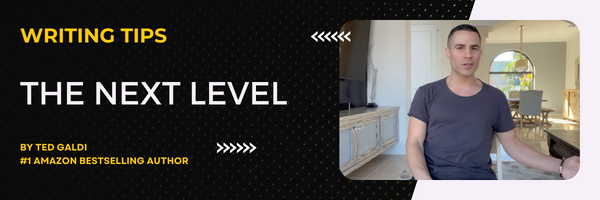How to Take Your Writing Skills to the Next LevelLearn expert writing techniques with my Hit Writer Course. The video lessons apply to authors and screenwriters in any genre across fiction and narrative non-fiction. If you join, you'll also gain access to me to personally help you as you write your next story. Expanding on your Intro Course skillsIn my writing Intro Course, I teach important writing skills for characters, plot, theme, and emotional impact. These skills will form a solid foundation for you. They can help you write a great story. However, you can improve a lot more from there. Tap into thousands of years of writing wisdomStorytelling has been around for thousands of years - since early humans told tales around campfires. And some of the smartest people of all time - such as Aristotle - have dedicated themselves to storytelling. Because of all those years and all those sharp minds, significant insights about storytelling have been discovered. Regardless of format or genre, many of the best stories of all time have traits in common. If you know where to look, you can see these commonalities. And if you know how to apply them to your own stories, you can deliver thousands of years of force from your pages. What are the traits the best stories have in common?These stories tend to be well structured. What does that mean? Their beginnings, middles, and ends aren't just collections of interesting events. The events are sequenced together in a purposeful way to hook, captivate, and wow the audience. An act is a tool writers use to structure their stories. Though the term "act" is mentioned a lot, most people can't accurately define it. To properly harness the power of acts, you need to understand what one is in detail. Acts are a great way to structure your scenes in a sequence. However, the best stories don't just unfold their scenes in a dramatic order - the scenes themselves are dramatic. All of them. Mastering the dynamics of a scene is essential if you want to take your writing to the next level. Which characters should go in which scenes? What should those character be doing? How should those scenes start? How should they end? What should you leave out of a scene? You need to have answers to every one of these questions. Finally, the events in all your scenes need to be connected in an effective web. You need to apply techniques for drama building to assure that you supply anticipation between scenes and generate strong emotional payoffs when you want them. For instance, have you ever been blown away by a certain event in a certain scene? Like a character dying? Or a character saving another? Or a character proposing to another? Well, your emotional reaction likely wasn't tied to just that one scene. A highly skilled writer likely built it up over multiple scenes by effectively tying story events together. Do you want to write like this?Luckily for you, I offer a sequel to my Intro class...my Hit Writer Course. There, I go into depth on these potent writing techniques. In full disclosure, the Premium course isn't free. But it's well worth the fair price. You can get through all the material in just two days. By the end, you'll definitely be a much better writer. And you'll definitely feel more enthusiastic about your writing career than ever... More writing course topicsSome more writing topics the Hit Writer Course covers...
What do you get if you join the writing course?
Is the class worth the price?With the new, expert skills you'll gain, your next story should have a lot of audience appeal. If you're an author, this can lead to the sale of many more book copies and if you're a screenwriter, your chances of selling your script can go up. If your story is even somewhat successful financially, you should make back the course's cost fairly quickly, plus earn even more. Not to mention, the course comes with a full-refund guarantee. If you register, watch all the lessons, and don't feel you learned new, high-quality writing skills, just contact me within two weeks and I'll give you a 100% refund. No questions asked. Ready to become an expert writer?I'll see you in the Hit Writer Course.
1 Comment
Richard BACON
5/15/2023 10:07:12 am
I "took" to our intro course and have worked through a number of books by James Scott Bell.
Reply
Leave a Reply. |

 RSS Feed
RSS Feed